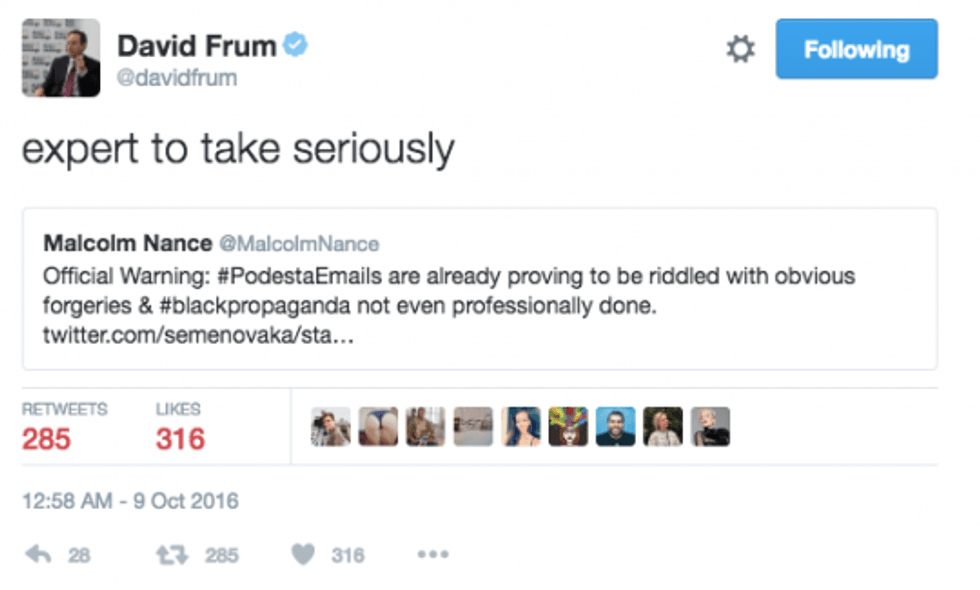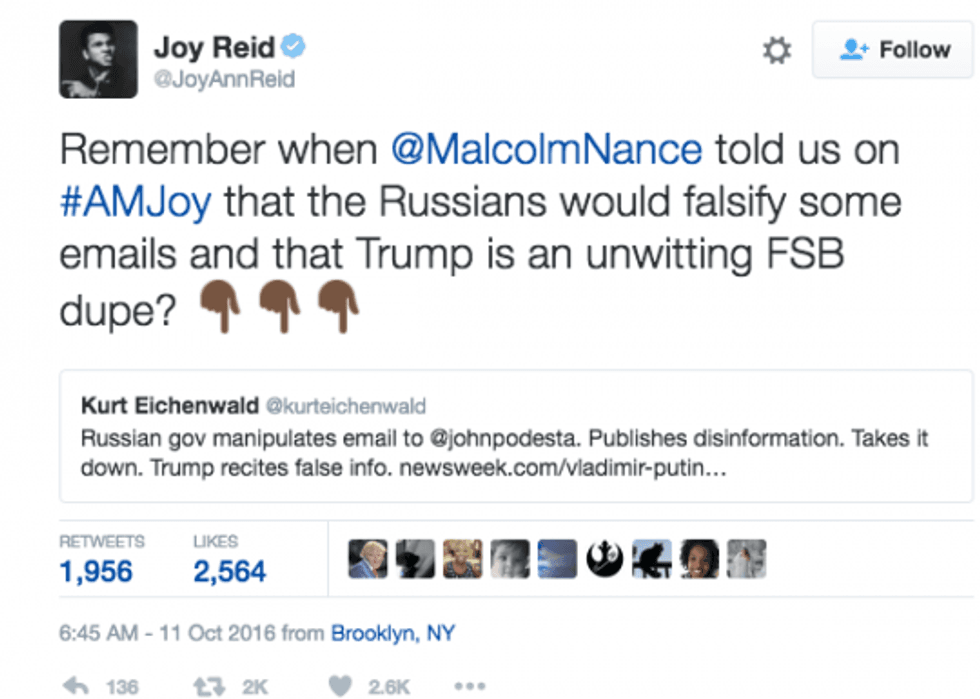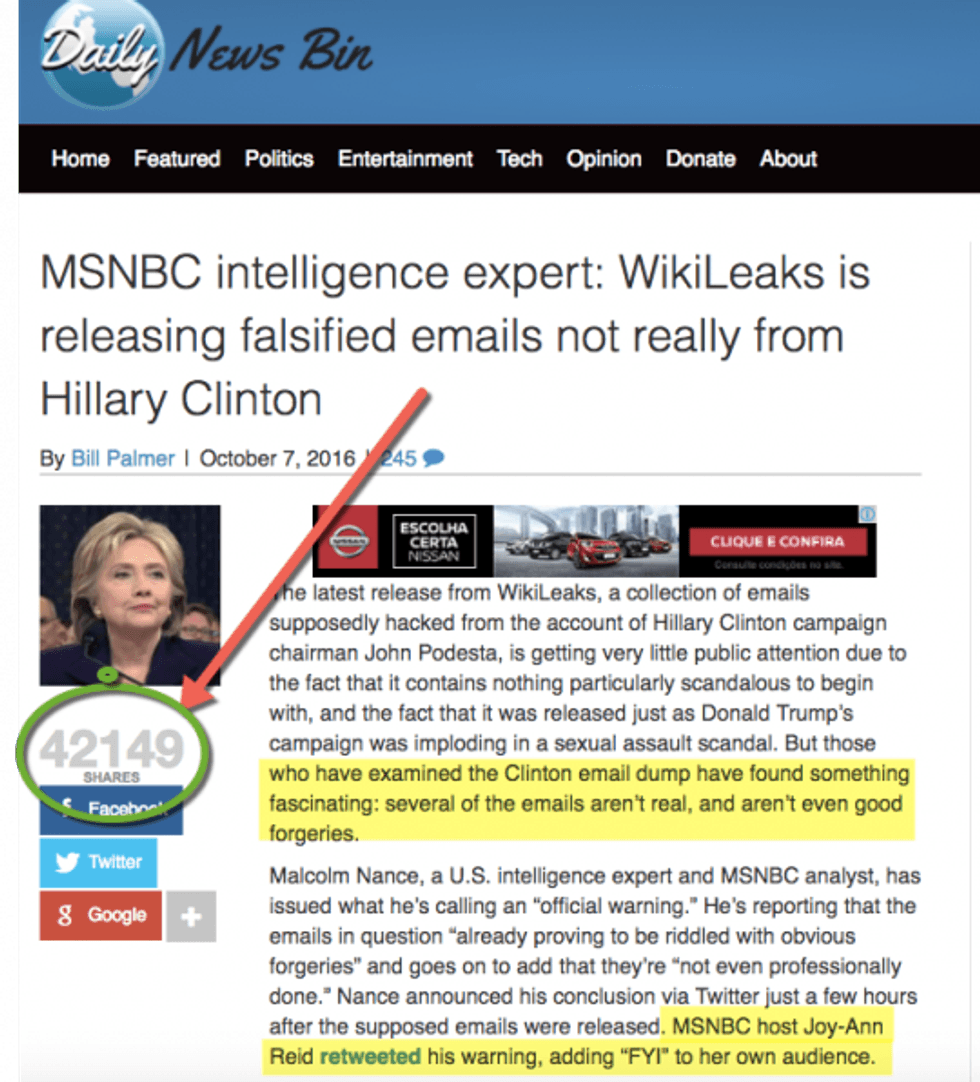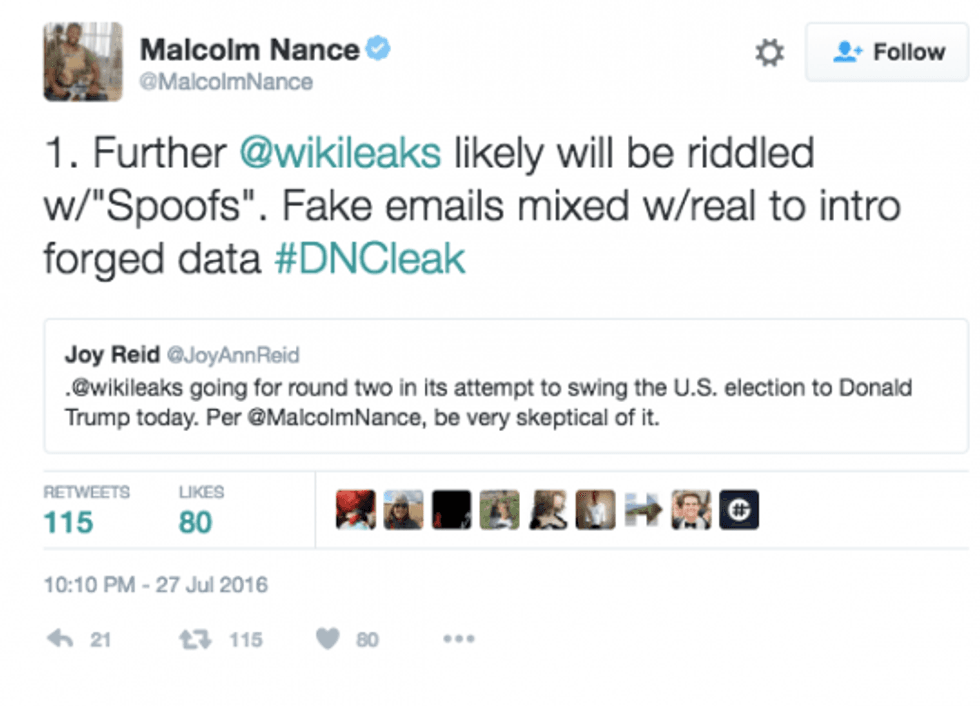The phrase "Fake News" has exploded in usage since the election, but the term is similar to other malleable political labels such as "terrorism" and "hate speech": because it lacks any clear definition, it is essentially useless except as an instrument of propaganda and censorship. The most important fact to realize about this new term: those who most loudly denounce Fake News are typically those most aggressively disseminating it.
One of the most egregious examples was the recent Washington Post article hyping a new anonymous group and its disgusting blacklist of supposedly pro-Russia news outlets - a shameful article mindlessly spread by countless journalists who love to decry Fake News, despite the Post article itself being centrally based on Fake News. (The Post this week finally added a lame editor's note acknowledging these critiques, which absurdly claimed that it did not mean to "vouch for the validity" of the blacklist even though the article's key claims were based on doing exactly that).
Now we have an even more compelling example. Back in October, when WikiLeaks was releasing emails from the John Podesta archive, Clinton campaign officials and their media spokespeople adopted a strategy of outright lying to the public, claiming - with no basis whatsoever - that the emails were doctored or fabricated and thus should be ignored. That lie - and that is what it was: a claim made with knowledge of its falsity or reckless disregard for its truth - was most aggressively amplified by MSNBC personalities such as Joy Ann Reid and Malcolm Nance, The Atlantic's David Frum, and Newsweek's Kurt Eichenwald.
That the emails in the Wikileaks archive were doctored or faked - and thus should be disregarded - was classic Fake News, spread not by Macedonian teenagers or Kremlin operatives but by established news outlets such as MSNBC, the Atlantic and Newsweek. And, by design, this Fake News spread like wildfire all over the internet, hungrily clicked and shared by tens of thousands of people eager to believe it was true. As a result of this deliberate disinformation campaign, anyone reporting on the contents of the emails was instantly met with claims that the documents in the archive had been proven fake.
The most damaging such claim came from MSNBC's intelligence analyst Malcolm Nance. As I documented on October 11, he tweeted what he - for some bizarre reason - labeled an "Official Warning." It decreed: "#PodestaEmails are already proving to be riddled with obvious forgeries & #blackpropaganda not even professionally done." That tweet was re-tweeted by more than 4,000 people. It was vested with added credibility by Clinton-supporting journalists like Reid and Frum ("expert to take seriously").
All of that, in turn, led to an article in something called "The Daily News Bin" with the headline: "MSNBC intelligence expert: WikiLeaks is releasing falsified emails not really from Hillary Clinton." This classic fake news product - citing Nance and Reid among others - was shared more than 40,000 times on Facebook alone.

From the start, it was obvious that it was this accusation from Clinton supporters - not the WikiLeaks documents - that was a complete fraud, perpetrated on the public as deliberate disinformation. With regard to the claim about the Podesta emails, now we know exactly who created it in the first instance: a hard-core Clinton fanatic.
When Nance - MSNBC's "intelligence analyst" - issued his "Official Warning," he linked to a tweet that warned: "Please be skeptical of alleged . Trumpists are dirtying docs." That tweet, in turn, linked to a tweet from an anonymous account calling itself "The Omnivore," which had posted an obviously fake transcript purporting to be a Hillary Clinton speech to Goldman Sachs. Even though that fake document was never published by WikiLeaks, that was the entire basis for the MSNBC-inspired claim that some of the WikiLeaks documents were doctored.
Read the full article, with possible updates, at The Intercept.





